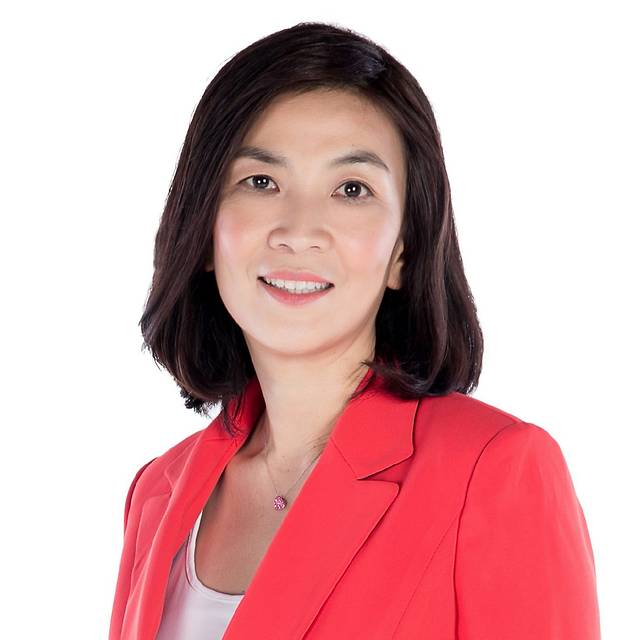How a South Korean mother-daughter pair was separated and reunited after 44 years
About 200,000 babies have been sent overseas since the 1950s, but the circumstances under which they were allowed to be adopted have been called into question.
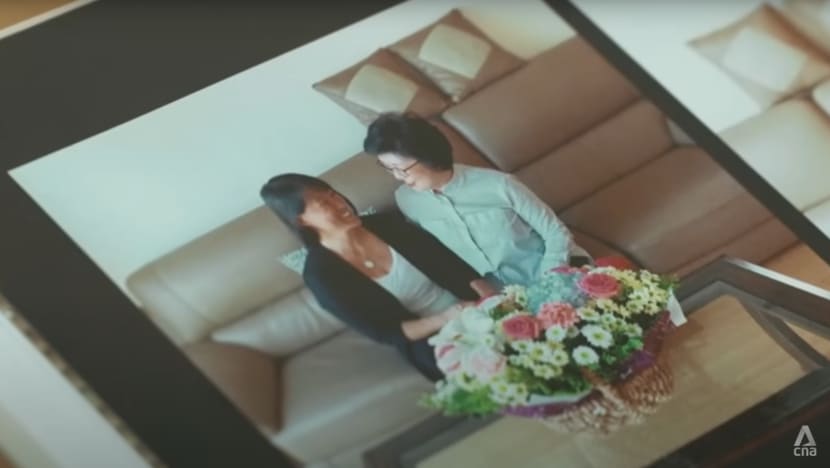
Madam Han Tae-soon and her daughter Shin Kyung-ha, now named Laurie Bender, met face-to-face after 44 years apart.

This audio is generated by an AI tool.
SEOUL: Shin Kyung-ha was playing in front of her home with a few neighbourhood friends when a woman told her that her parents did not want her anymore because there was a new baby in the family.
Shin, who was just four years old, believed the stranger and allowed her to lead her away.
The woman then took Shin on a train ride, where the toddler fell asleep. She woke up alone and was eventually taken to a police station in Jecheon, a city in Seoul’s North Chuncheong Province.
What happened next changed her life forever.
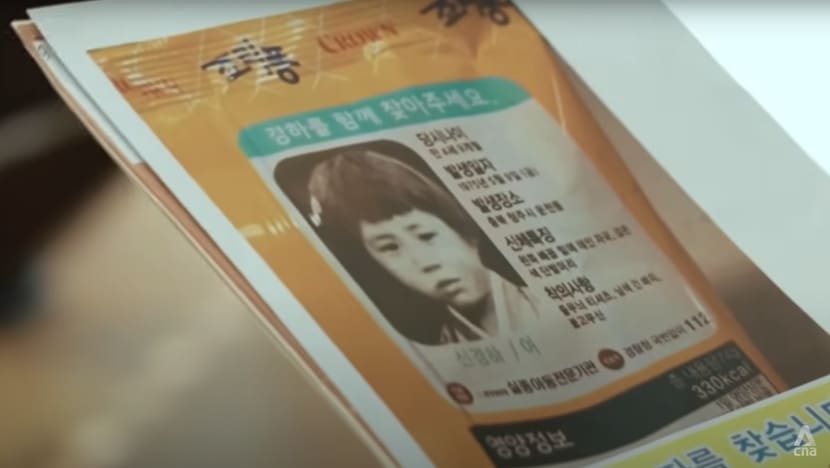
While her parents reported Shin missing and frantically looked for her, the police took her to Jecheon Children’s Home. She ended up losing touch with her family.
That was in May 1975.
For the next 44 years, years, her shattered family looked for her relentlessly. They made trips nearly daily to the police station, government offices and orphanages, plastering her pictures at train stations, on the streets, and on bags of snacks that advertised missing children.
Recalling the fateful day she lost her precious daughter, Madam Han Tae-soon told CNA: “That day, I was with my two younger children. I asked Kyung-ha: 'Do you want to go with Mum to the market?' She said no and stayed behind to play with the other children, like always.
“When I came back, she was gone."
THE REUNION
It was only decades later that the family finally found Shin through DNA testing services.
In 2019, mother and daughter met face-to-face in Seoul after 44 years apart. It was then that the details of her disappearance and what had happened came to light.
The girl had been adopted by an American family and sent to the United States, where she was named Laurie Bender.
"We video-called so many times before meeting in person. Each time, we would cry and all I could think to ask her was, 'How have you lived? How did you manage?',” said Mdm Han, who is now 73 years old.
“When I finally met her in person, I kept holding her, stroking her hair, wondering if this was really my daughter."
Mdm Han is now suing the South Korean government, the home, and Holt Children’s Services - South Korea’s biggest adoption agency - which handled the adoption.
She said her child was sent to the US nine months after she went missing, allegedly without proper background checks or efforts to find her family.
In her adoption papers, Shin is described as an abandoned orphan with no known parents, and her surname had been changed to Baik.
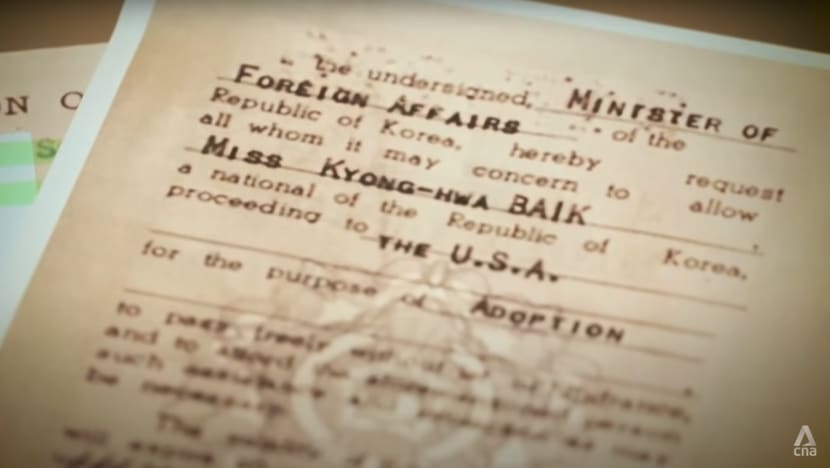
"I spent my whole life searching for her, but neither the government nor any agency ever apologised to me or acknowledged what I went through. I want compensation for all the pain and suffering I endured,” said Mdm Han.
“More than that, I want my daughter’s life to be restored. Even though we found each other, we can’t even communicate properly. It is a dilemma. She doesn’t speak Korean and I don’t speak English. Who’s going to fix this? I’m not young anymore.”
USING DNA TESTING
Mr Cho Min-ho, who heads children's rights group Children Rights Solidarity, is one of many people who helped Mdm Han search for her child.
He himself grew up in an orphanage after losing hold of his mother's hand when he was four years old.
He shared that he resisted adoption, but witnessed about 50 others being sent abroad at the orphanage.
"Cases like this are now being re-examined, and we're trying to (seek) responsibility for what happened because the information was falsified. Names and even family backgrounds were changed (and) adopted children were registered as orphans, even though their parents were alive,” he said.
“But with DNA testing, there's now hope that overseas adoptees can be reunited."
It was through such DNA testing that two adopted sisters - one in the US and the other in Belgium - found each other in 2019.
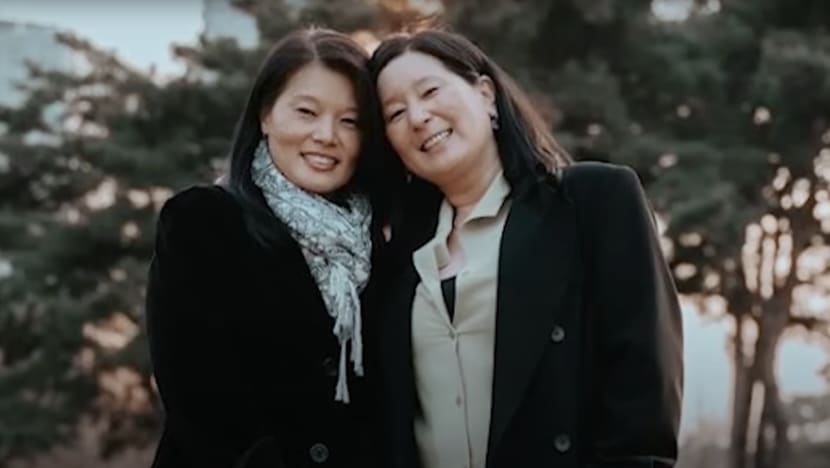
Ms Christine Pennell went through the test in America because she wanted to find her mother, while across the Atlantic, Ms Kim Haelen did so for health reasons.
Ms Pennell is believed to have been abandoned at age two at a train station in the southern city of Daegu, located about 300km southeast of capital Seoul. Her sibling was found at another train station nearby at just six weeks old.
“Suddenly one day, I get an email and it says: ‘Are you Korean? I think we're related'. I see in front of me: ‘Kim Haelen, Belgium, Full sister’ and I'm just crying,” Ms Pennell told CNA.
“That means our parents were together long enough for the both of us to be born two-and-a-half years apart. So we came from a family."
LOOKING FOR THEIR MOTHER
The sisters reunited in 2020 in South Korea after being separated for 49 years.
They travelled together to Daegu - a two-hour train ride away from Seoul - hoping to find clues that would lead them to their mother.
With no memories of their past or the names of their parents, however, they left empty-handed.
But the search is not over for Ms Pennell, now 55 years old.
She now lives alone in Seoul, having left the US - where her four children live - in 2020 to devote her life to finding her mother.
She runs a bakery, Suga Mama, which has become a second home of sorts for adoptees looking for their birth families in South Korea. There are even DNA kits available for customers who need them.
"I really have this big plan that Suga Mama ends up all over Korea, not just here in Gangseo-gu. And if I can get famous, maybe that will help me find my family,” she said.
During several trips to Daegu, she found herself returning to Banyawol station where she is believed to have been found alone on Nov 13, 1971.
"I wish she (my mother) would just come here and say, 'I found you’,” Ms Pennell said in tears.
“I just wish it wasn't so hard. Sometimes I picture (how) we probably came here together and I was just playing like in the dirt or something. And then maybe I turned around and like she was just gone.”
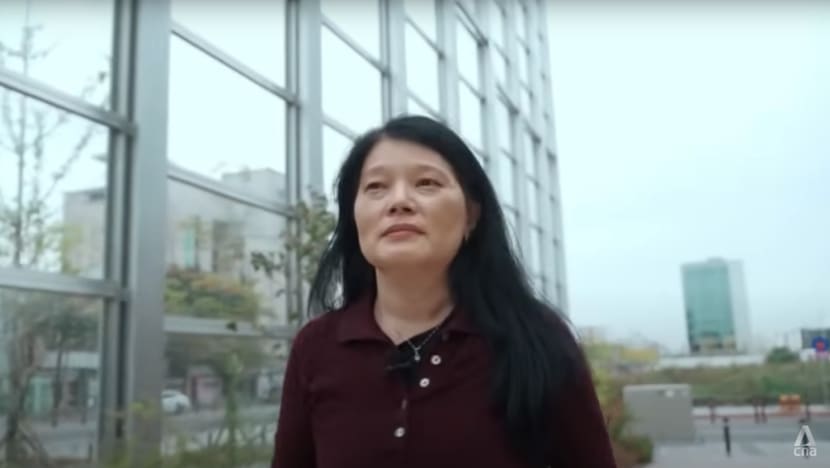
SOUTH KOREA’S FLAWED ADOPTION SYSTEM
Driven by poverty, South Korea used to be the world’s largest source of babies for adoption.
It began with Korean women wanting to give away babies they had with Western - mostly American - soldiers during the Korean War in the 1950s.
However, the practice soon expanded to poor families, orphanages and unwed mothers, as the business reportedly brought millions of dollars into South Korea.
Overseas adoptions peaked in 1985 when nearly 9,000 babies were sent abroad. These numbers gradually fell as the South Korean government promoted domestic adoption.
About 200,000 babies in total have been sent overseas since the 1950s, but the circumstances under which they were allowed to be adopted have been called into question.
In recent years, reports have emerged of newborns being kidnapped or taken away by doctors who claimed they were dead or sick.
Amid heavy criticism for issues like alleged falsified paperwork and human rights abuses, the adoption system will soon undergo drastic changes.
The government is set to implement reforms and take over the adoption process - currently managed by private agencies - in July next year. It promised that the new state-led system will safeguard children, promote domestic adoptions, and reduce the number of children sent overseas.
Meanwhile, Ms Pennell, who has continued with her search for her mother, does not plan to give up.
“I just want to hold her. I just want to know that she's okay and that it was hard for her, because I'm sure it was,” she said.








